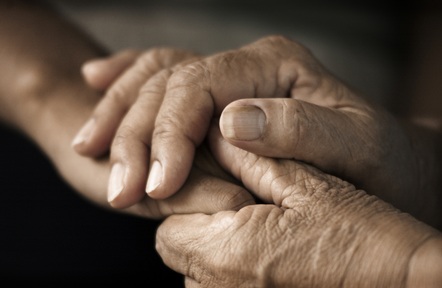Care homes probed for 'unfair' fees charged to families after residents die
Care homes are charging families for ‘extended periods’ after the death of an elderly relative, prompting a string of complaints to the Competition and Markets Authority (CMA).

The watchdog is investigating the practice after it received complaints from families being charged for sums that can amount to thousands of pounds before the room can be relet.
Care England, a representative body for independent care services in England, said arrangements for paying for rooms after the death of a resident were stipulated in the contracts.
Chief executive, Martin Green, said: "Care homes are charging in line with contractual obligations. Sadly, death does not mean that you immediately have to stop paying for everything and you are bound by the contract termination clauses. There are many things where you have to pay after death, not least taxes."
Many care homes charge for the week following the death of a resident so relatives have time to remove belongings.
However, the CMA was told in submissions that families were being charged fees for ‘extended periods’ after their relative’s room had been cleared.
In December 2016, the CMA launched a national investigation to examine how well the sector is working, including whether care home providers are treating residents and their representatives fairly.
It is scheduled to deliver its interim report by 1 June and has called for more residents and their relatives to come forward.
One submission from the wife of a resident said: "The demands on relatives are substantial – they have not got rid of their responsibilities, but developed other, different ones.
"I firmly believe that this dishonesty in charging must be dealt with. There should be a lifetime cap on fees for the individual. Their income tax could be reduced during the years a person was in care. (If a ‘death tax’ is introduced those who have paid for years for themselves, and by default for others, should not be liable).
"Unlike other risks in life, care needs are not pooled. Illnesses, like cancer, are looked after by the health service, free. If you are unfortunate enough to get dementia then you face the need to pay. The current model of care in the UK is under-funded, unclear and unfair. It needs a proper independent investigation."
The CMA has also received complaints about a lack of transparency around care home fees, difficulties moving homes after a fee increase and self-funders paying more than state-funded residents for the same services.
A spokesperson for CMA said: "Choosing a care home can be emotional and costly. It’s therefore essential that elderly people and their families have all the information they need to make the best possible choice, and then feel secure in the knowledge they will be fairly treated throughout their time there.
"We are very keen to hear from care home residents and their relatives who have experienced issues such as unexplained or 'hidden' charges, unexpected fee increases or occasions when they feel that complaints have not been handled fairly. As part of our review we are looking at whether care homes are complying with consumer law so we’re encouraging people to come forward with any evidence of unfair terms or practices."
Latest News Analysis
 04-Sep-19
Extra £1.5 billion announced for social care in Chancellor's Spending Review
04-Sep-19
Extra £1.5 billion announced for social care in Chancellor's Spending Review
 02-Jul-19
Department of Health forced to rethink care homes' nursing rates after legal challenge
02-Jul-19
Department of Health forced to rethink care homes' nursing rates after legal challenge
 18-Jun-19
Overnight care workers forced to sleep in offices and told 'bring your own bedding'
18-Jun-19
Overnight care workers forced to sleep in offices and told 'bring your own bedding'
 14-Jun-19
Back in the closet: Third of care home staff have had no LGBT+ awareness training
14-Jun-19
Back in the closet: Third of care home staff have had no LGBT+ awareness training
 11-Jun-19
PM candidates on social care: Rory Stewart calls fixing care an 'unfinished revolution'
11-Jun-19
PM candidates on social care: Rory Stewart calls fixing care an 'unfinished revolution'